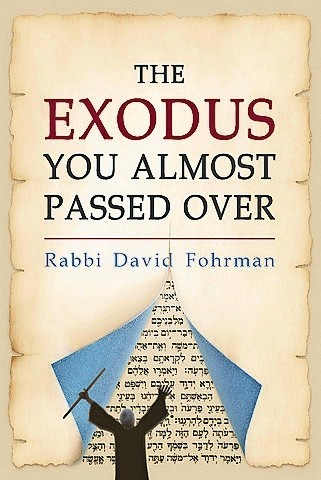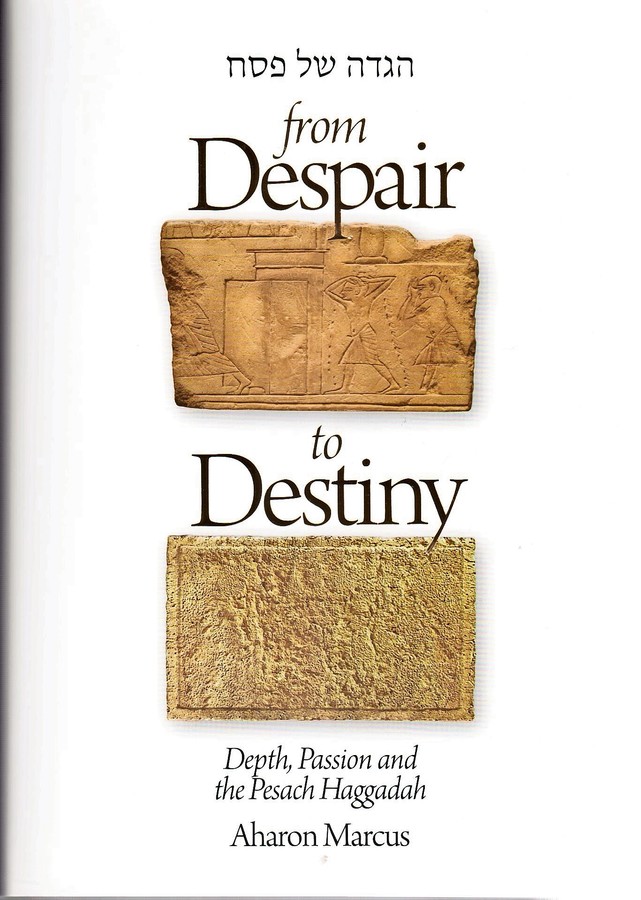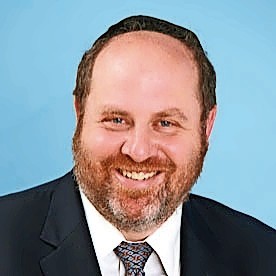Preparing for our seders with chosen Haggadahs
At Alan Gerber’s request, we’re reprinting his reviews of two Haggadahs that he holds in high regard — one by Rabbi David Fohrman of Woodmere, the other by Rabbi Aharon Marcus, who was born in Far Rockaway.
The names of our Jewish holidays are almost always listed and used in the Hebrew language, even those that have English equivalents. That is, all holidays except one, Pesach, which more often than not is listed as Passover.
In his latest work, Rabbi David Fohrman, one of America’s leading theologians, titled his book, “The Exodus You Almost Passed Over,” an amusing play on the holiday’s name and theme and an accurate title for the content of his new work.
This week’s essay will reference the author’s humorous take on a holiday’s name and quote the book’s introduction take to give you a taste of his talented pen;
“In Hebrew, it is Pesach; in English, it is Passover. But, either way, it seems like an odd name for a holiday. Would you have named it that?
“Imagine it is 3,000 years ago. You are an angel in heaven, and you have been invited to join G-d’s Nominating Committee for the Naming of New Festivals. One day you and your fellow angels on the committee get word that the Master of the Universe would like to make a shiny new festival that celebrates His miraculous deliverance of the Israelites from slavery in Egypt. You immediately get down to work with your colleagues to brainstorm some possible names.”
Among the names mentioned are Freedom Day, and Independence Day. Nothing unusual there, but here is the catch.
“Imagine some angel in the back of the room raises his hand and says, ‘I have a great idea. Much better than those names. Let us call it Passover. Passover is a really wonderful name’.”
Rabbi Fohrman continues with this gag narrative: “See, it is a kind of a pun. … You know how G-d made all these plagues to let the Israelites go, and then there was this tenth plague, right? And in the tenth plague, all the firstborn children of the Egyptians were killed. But the Israelites? They were saved. So you could say that G-d sort of ‘passed over’ their first-born children that night, when he didn’t kill them. You get it? He passed over their first-born? So let us call it Passover!”
A bit of give and take ensues but finally the name Passover wins. With this all as prologue, the author adds the following observation:
“Perhaps the name suggests that we should adjust our sights somewhat. We tend to think of Passover the way I have just described it to you, as a holiday on which we got our freedom. And yet, the Torah’s own name for the night we went free does not emphasize the ‘free’ part, it emphasizes ‘passed over.’ Could it be that, somehow, the essence of the holiday really does revolve around the mysterious salvation that our firstborn experienced that night?”
I bet that you, my dear reader, never thought of the Passover name in this perspective. Neither did I, until now.
Further on in this work, we come across the following:
“Passover looks at the events of the Exodus as significant not in terms of history but in terms of destiny.”
As I look at this statement, as a student of both history and religion, I see that Rabbi Fohrman reflecting in these words the signposts of what Passover is all about, and of why it is so special a holiday that even an English nomenclature sounds respectable for use in the most spiritual contexts.
This, in part, is what makes Rabbi Fohrman’s teachings so special. Do read his preface very carefully, for within it you will glean the author’s intent and find the basis of his deep and sincere belief in our faith and its observances.
Pesach commemorates events that clearly defined our people’s history and purpose. So, when I happened upon a commentary on a Haggadah whose author’s name brings to mind events in my past, a personal comment is in order as preface to this review.
“From Despair to Destiny” (Halpern Center Press, 2015) by Rabbi Aharon Marcus is a unique and comprehensive commentary on the Pesach Haggadah. The author is the grandson of Rabbi Joseph Marcus, z”l, a distinguished rabbi and a neighbor of ours on the Lower East Side, first on Tompkins Square, and then in Co-op Village, who was particularly skilled in teaching and lecturing to senior citizens.
Most memorable to me was the casual friendship he struck up with me, during my pre-teen years, an experience that influenced my later deep appreciation for Jewish liturgy and nusach, Jewish music and culture, and the importance of giving communal service to our senior citizens.
I began my email interview with Rabbi Aharon Marcus by asking him why did he decide to write a Haggadah commentary when there already are so many available.
“G-d has given me the opportunity to teach the Haggadah every year since the summer — yes the summer — of 1990, generally as intensive two-week-long information seminars. For nearly two decades, many of my students have impressed upon me to publish these shiurim, but my response had always been the same: there are many Haggadah commentaries; do we really need another one?”
“While teaching the Haggadah in 2014, though, I realized that many of the ideas of the shiurim were actually unavailable in English, and that I had often failed to give them over as comprehensively as I would have prepared. It was then that I decided to take the time to more fully develop the ideas and publish them in book form.”
Rabbi Marcus explained:
“The goal of this work is to help clarify the entire Haggadah, to explore ideas that are unique to Pesach — exile, redemption, freedom, the significance of the Exodus — and notions crucial to Judaism in general, such as the definition of holiness, the efficacy of prayer, and the love of G-d. This work was not intended as a book on Jewish law, nor, an anthology of divrei Torah to share at the seder. Rather, I see this intended to be a work on machshavah, Jewish thought. …
“I have tried to craft a commentary in which everyone could find his or her place in the depth and beauty of our rich tradition. All this was generated by the reality that different people find religious truths and meanings in different Torah thoughts and teachings.”
I asked Rabbi Marcus why, unlike most other English commentaries this Haggadah, his reads from left to right.
“The guiding principle for the layout of this work is one word: clarity. Since it is designed for English readers and the overwhelming majority of the text is in English, I thought that it would flow better, and more easily, if it read from left to right. To compensate for this, though, all the actual Haggadah text — both in Hebrew and English, is always to be easily found on the odd numbered pages, located on the readers’ right side.”
A personal note:
As a teacher I was taken by Rabbi Marcus’ treatment of the segment dealing with the forth of the four sons. The author’s humane treatment of this ‘’son’’ is touching:
“The first stage of education is pouring on chessed — warmth, love, and compassion.”
“Stimulate his interest so that he asks questions and actively participates.”
“An educator must believe in his students and their potential.”
“The silent son needs us to mend his tools, to make him whole.”
When one considers the title given to the forth son, “The One Not Knowing to Ask,” we come to better appreciate the humanity of the author of this gifted commentary, and of the well learned teachings that he learned from his gifted grandfather, Rabbi Joseph Marcus.

 49.0°,
Mostly Cloudy
49.0°,
Mostly Cloudy 









